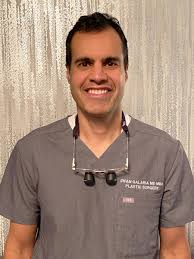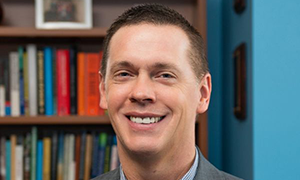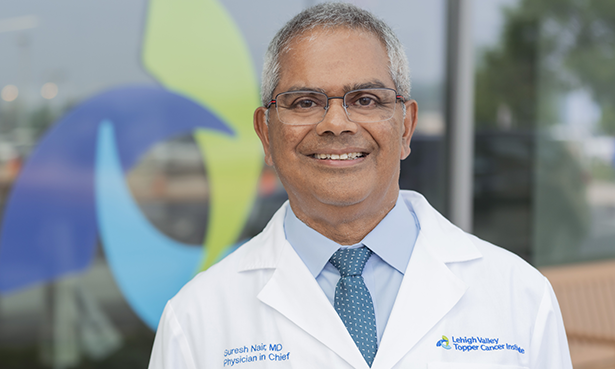This sage observation is an obvious, appropriate fit when characterizing healthcare today. As medicine grows more multifaceted and complex, the field of Healthcare Quality and Safety (HQS) and the prevention of adverse events and substandard care is critical—now more than ever before.
Dr. Frank Colangelo, an assistant director for the Healthcare Quality and Safety Program at Jefferson’s College of Population Health, began his Jefferson career as a 1984 graduate of the SKMC. After serving his residency in internal medicine at the University of Pittsburgh, Colangelo has practiced since 1987 as a member of the Allegheny Health Network. “Around 2005, when local insurers began offering bonuses to practices that delivered high-value, high-quality care, I offered to assist the executives of my practice in their efforts at transformation,” he says.
It was a keynote address by the founding dean of Jefferson’s College of Population Health, Dr. David Nash at the AMGA (formerly American Medical Group Association) that inspired him to take the next step in his leadership journey. “He discussed sobering facts about preventable deaths and hospital-acquired conditions that occur in the U.S. each year,” he shares. “I immediately sent in my application for admission to Jefferson’s School of Population Health to obtain a master’s degree in Healthcare Quality and Safety, since I realized that getting involved in such a program would enhance my leadership abilities.”
After earning a master’s in healthcare quality and safety at Jefferson in 2017, Colangelo was recruited to join the HQS Program faculty in 2018. “I became an active member, teaching many classes,” he says. “Since I have multiple physician and other quality improvement specialist contacts nationwide through the work I have done with AMGA, I was asked to assist with the external-facing efforts—the marketing and recruitment for the program.”
The Jefferson College of Population Health originally created the Quality Improvement & Patient Safety (QIPS) Leadership Development Program to develop physician faculty leaders in quality improvement and patient safety.
The pioneering program was the brainchild of Billy Oglesby, PhD, MBA, Jefferson’s Humana Dean of the College of Population Health. “He had joined the College and put together an idea for the project,” says Ellen L. Guarnieri, associate program director of external programs for HQS. “We had our first cohort in 2018. The idea was to utilize this type of external program as a way to reach out and spread our mission further.”
While initially the concept was to develop a group of physician faculty empowered to utilize quality improvement and patient safety to heighten their leadership skills, the program has grown to include leaders from across the healthcare team. “Even though we have a heavy preponderance of physicians in all our programs, we love the fact that we’re able to draw from all different clinical disciplines,” says program director Mary Reich Cooper, MD, JD.
“It is not only clinicians who join this program,” explains Colangelo. “We have physicians, nurses, pharmacists, physical and respiratory therapists, social workers, and healthcare operational support staff. The interdisciplinary aspect enriches the nature of the interactive discussion experiences that occur during the program.”
“We draw from across the United States,” Cooper says. “These are people who want to fix healthcare’s broken process and are looking for a way to do that so it’s sustainable. We are an applied practice program. We teach people how to do. Our faculty are all working faculty in the field, and we teach people practical applications and how to make it happen in their own organizations.”
September 2023 marked the seventh cohort of QIPS students. “Over the last six years, there have been more than 100 QIPS students who want to get an introductory experience with graduate level work in healthcare quality and safety,” Colangelo says. “They take the first three courses of the master’s program, experience monthly live webinars led by expert faculty on healthcare quality and safety topics, and complete a mentored quality improvement project at their place of work.”
Upon completing the three graduate-level courses, participants receive an Advance Practice Certificate—and if they choose, either complete a graduate certificate or master’s degree in healthcare quality and safety, or use the transferable courses for further education. Colangelo shares that approximately 40% of the QIPS students enjoy and value the work, education, and experience so much they complete the full master’s program.
“The nine-month QIPS program consists of three online asynchronous graduate level courses that are each seven weeks long,” Guarnieri says. “Students also attend nine monthly live virtual sessions designed to enrich their learning. At the start of the program, they choose an improvement project to work on, and they receive mentorship through the nine months to develop that study and implement a change. Students demonstrate improvement project success in a poster presentation session at the end of the program. Because this is a cohort model, the same instructor follows them through the three courses and mentors them in their projects. Developing a close relationship with their instructor/mentor and QIPS program leadership enhances student support. Frank Colangelo was essential in creating this delivery model, which has proven successful for the students and the program.”
“One of the things that differentiates this program from others is that we focus on the leadership aspect of quality and safety improvement,” says Guarnieri. “We thought it essential for students to learn the nuts and bolts of improvement science and how to apply their learnings in a real setting. We also thought it vital to train leaders to work within their departments to effect change and make improvements immediately. We encourage students to develop teams and mentor team members through the improvement process.”
She continues, “From the first cohort, students have participated in a pre- and post-program confidence survey.” “The survey assesses students’ ability to lead teams and use the tools and methods of improvement. We have seen some remarkable increases in confidence scores. So far, over 100 people have participated in the program, and we’ve been able to measure six cohorts. It’s encouraging in many ways.”
On a 100-point scale, confidence increased on average from 40.00 to 82.78 in using dashboards and scorecards to optimize learning and care delivery, on average from 41.70 to 85.29 for analyzing practice using Donabedian’s quality framework, increased on average from 40.6 to 78.04 in being able to explain techniques such as benchmarking, and risk-adjustment; and rose from 68.63 to 92.89 in role modeling quality improvement and patient safety techniques as part of their routine work.
This is just one example of the power of the QIPS program at work. Most students continued to develop their QIPS improvement project into their graduate capstone project. Several have formally published and presented their work, expanding the influence of their leadership nationally. A 2018 graduate of QIPS, Jefferson’s James S. Harrop, MD, professor of neurological surgery and orthopedic surgery and division chief for Spine and Peripheral Nerve Surgery, published his capstone project “Are Guidelines Important? Results of a Prospective Quality Improvement Lumbar Fusion Project” in 2022. Neurosurgery chose his paper as the 2022 Paper of the Year, and he presented the work at the 2022 Congress of Neurological Surgeons Annual Meeting. Patrick C. Hanley, MD’s capstone, “Reducing Diabetic Ketoacidosis Readmissions with a Hospital-School-Based Improvement Partnership,” was published by the American Journal of Medical Quality in 2023.
“Many of our QIPS students get promoted within a year after they finish the program,” says Cooper. “Participants become more valuable to their departments and to their bosses, because they know how to fix things. Once you know how, it’s a replicable approach that you can do over, and over again. A lot of our students are identified by their bosses as people who have an attribute they can take and mold into greater leadership potential.”
For residents and fellows, obtaining background in quality and safety is an immeasurable opportunity to showcase when interviewing for jobs. “They can say, ‘I did a project that had this outcome,’” shares Cooper. “They can talk about their project succinctly and demonstrate that not only do they have the tools to achieve differences, but they’ve been able to do it and show those differences.”
“Healthcare is really in crisis right now,” Cooper continues. “When we look at the data over the past 20 years, we expected to be at a different place than we are. We expected outcomes to be better. We expected safety events to have decreased. We expected with all the hard work over the past 20 years that we would be in a different situation. But I think the pandemic unfortunately uncovered a lot of the processes that still are so flawed. This program gives people not only the skills, but the courage, to speak up and say, ‘We can do better at this.’”
Colangelo is proud of Jefferson’s leadership in the field. “Jefferson is noted for building future leaders of healthcare quality and safety; and helping with the effort to reduce risk, errors, and harm that patients experience in healthcare in the U.S. today,” he says. “We hold the distinction of being the first to offer a master’s degree program in quality and safety.”
Jefferson’s enterprise-wide investment in quality and patient safety will continue to have far-reaching implications for years to come. “I am rewarded by the knowledge that I am creating an impact far beyond the patients that I care for clinically, by helping to create a new generation of healthcare providers who are passionate about improving healthcare quality and safety,” he shares.



